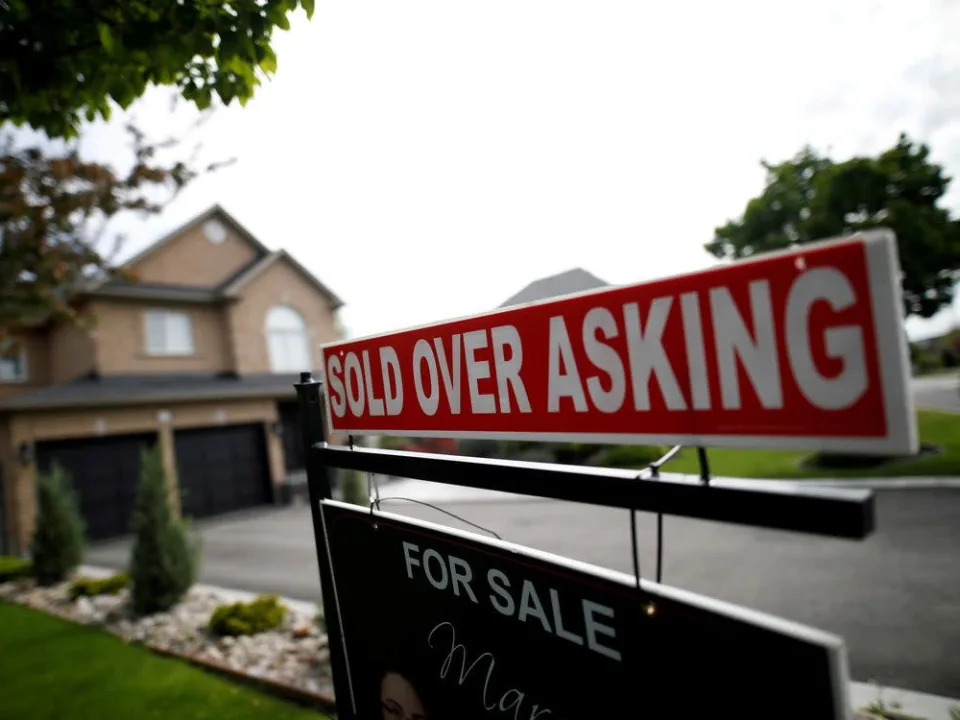 People who bought homes when prices were peaking earlier this year must be wondering if they made the right decision at the right time now that prices are declining.
People who bought homes when prices were peaking earlier this year must be wondering if they made the right decision at the right time now that prices are declining.
Homebuyers and sellers have long been familiar with remorse. As soon as a transaction is agreed upon in principle — a firm offer — remorse can set in.
Sellers might believe they were too quick to accept an offer and wonder if there could have been a higher offer had they waited a bit longer. Buyers, meanwhile, are more likely to experience remorse after their offer is accepted, fearing they might have overpaid since why else would the sellers have accepted their offer.
Real estate agents are typically able to convince buyers and sellers that they have made the right decision when housing markets are balanced with moderate increases in prices. But that becomes more difficult when large declines in housing prices are observed over a short period, such as has happened since February.
The decline in average prices — not adjusted for housing quality, type and size — is more pronounced than the size- and quality-adjusted housing price indexes. But since price movements with larger deviations from the long-term trend influence consumer sentiments more, the idea that buyers’ remorse is more pronounced now is taking root.
In the Greater Toronto Area, average housing prices declined to $1.08 million in August from $1.33 million in February, a decline of more than $250,000, or 19 per cent. Those who purchased homes at the peak of the market must be wondering about the timing of their purchase. Some might even be experiencing remorse, but perhaps not as many as people think.
A recent poll by Zolo Realty interviewed almost 1,200 people who bought a home during the pandemic and found that the large majority of them were quite pleased with their purchase. Indeed, 63 per cent reported “they would still be happy in their home even if the real estate market dropped significantly.”
Buyers who relocated to a different province were even more likely to be satisfied, which is perhaps driven by the cheaper prices they paid relative to the places they moved from.
But what about the risk-takers who were fast and loose with their buying decisions and waived financing and inspection conditions when they bought homes? A much smaller share of these buyers, 58 per cent, expressed continued satisfaction with their purchase. Put differently, 42 per cent of such buyers may now be having mixed feelings.
Nevertheless, 84 per cent of those who paid over the list price during the pandemic were still pleased with their purchase. They may not necessarily have overpaid, because list prices during the pandemic were deliberately set lower than the price of recent comparable sales to attract buyers and encourage bidding wars.
Overall, though, the Zolo Realty poll suggests buyers’ remorse is not as widespread as recent blaring headlines suggest.
There are a few reasons why concerns about remorse are exaggerated. First, talk of remorse is mostly anecdotal and based on conversations with a few realtors rather than proper surveys of recent homebuyers.
Also, most buyers bought homes during the pandemic to satisfy a need. The poll showed that 53 per cent of buyers needed more space, 43 per cent were tired of renting, 28 per cent thought buying was a good investment opportunity and 24 per cent felt their previous home configuration did not meet their needs.
Visit case bound book printing homepage for more details.
Another reason for the lack of widespread remorse is that most homebuyers know that even with lower housing prices, their mortgage payments could still be higher because of high interest rates.
Consider the following comparison in mortgage payments. With a 20-per-cent down payment and a five-year fixed rate of 2.3 per cent on a 30-year mortgage, the monthly mortgage payment for an average-priced house in the GTA would have been approximately $4,100 in February. With today’s higher rates of 4.3 per cent, an average-priced home, despite being cheaper, now requires $4,300 in mortgage payments. Higher interest rates also mean borrowers will pay much higher interest over the life of the loan.
Buying a house is a long-term decision for most families who intend to live in the same house for a long time. It is not just a financial investment, but an investment in people and places. For those with a long-term horizon, remorse should not be a concern.
Comments
No comments yet. Be the first to react!